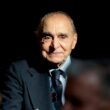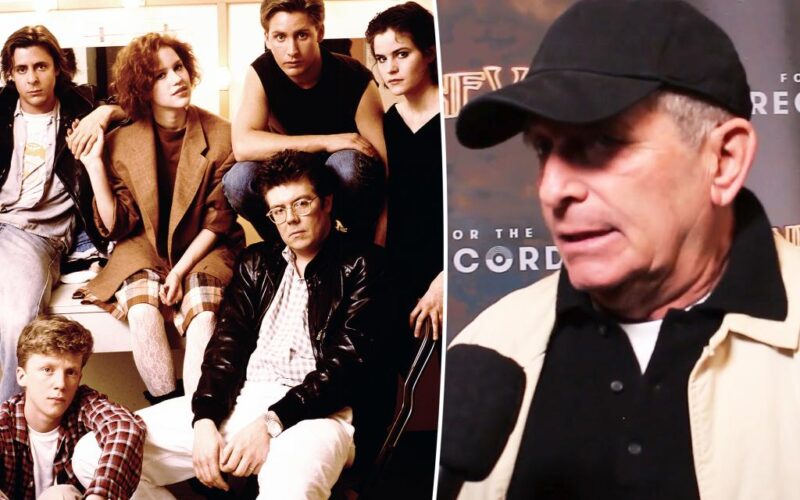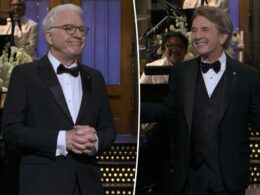When John Hughes wrote “The Breakfast Club,” he had his eyes set on the stage — not the big screen.
Adam Fields oversaw the production of the iconic 1985 flick and, 40 years later, shared some insight into how the now-cult classic was originally pitched as a play.
“John Hughes was a nobody when he sent me that script,” Fields exclusively told The Post at the opening of Tarantino | Pulp Rock at Hollywood Park earlier this month. “He sent it to me as a play, which I don’t know if I really want to talk about that, but it all took place in a classroom, and I said, ‘Why don’t you write a play? We’re in the movie business.’”
“He goes, ‘Well, you know, I haven’t really worked with actors before, so I thought a play would be a good idea,” Fields said of Hughes’ response. “I go, ‘No. We’re going to make ‘Sixteen Candles,’ and we’re going to make ‘Breakfast Club’ as movies.’”
Hughes wrote, produced, and directed the teen comedy-drama about five high school students who were forced to spend Saturday in detention together for different reasons.
“The Breakfast Club” stars Judd Nelson as John (the rebel), Molly Ringwald as Claire (the popular girl), Ally Sheedy as Allison (the outcast), Emilio Estevez as Andrew (the jock) and Anthony Michael Hall as Brian (the nerd).
The movie went on to gross $50 million off of a $1 million budget and has been regarded as one of Hughes’ most memorable works. Despite its success, “The Breakfast Club” earned no major awards besides the cast being presented with the Silver Bucket of Excellence at the 2005 MTV Movie Awards.
When speaking to Fields about “The Breakfast Club” four decades later, he shared that he does not think the flick could be remade today, like, for example, “St. Elmo’s Fire,” which Rob Lowe shared is in the early stages of development.
Fields also included some of his other work — “Sixteen Candles,” “Donnie Darko,” and more — into the “do not touch” fold.
“I think it’s really hard because none of those movies were plot-driven. They’re really character-driven,” he told The Post of the films. “I mean, what’s the plot of ‘Sixteen Candles’? Oh, yeah. Birthday. Parents forget and all that. ‘Breakfast Club,’ you know, bunch of kids sitting around in Saturday detention.
“People are very concept-driven now,” Fields explained. “And I think those movies weren’t about concept, they were about the characters, and it reflected a period of time. I think ‘Breakfast Club’ is so … I think it fascinates people because everyone sees themselves in one of those characters. Everyone was either the prom queen, the weird girl, the jock, the nerd, the rebel.”
“The Breakfast Club” was released on February 15, 1985, with this month marking its monumental 40th anniversary.
Sadly, Hughes is not here to see his movie’s continued success.
The legendary filmmaker died suddenly in August 2009 after suffering a heart attack during a morning walk in Manhattan.








